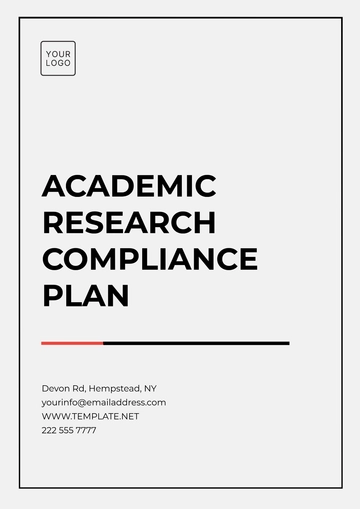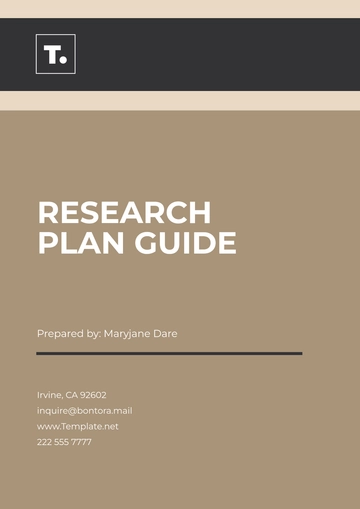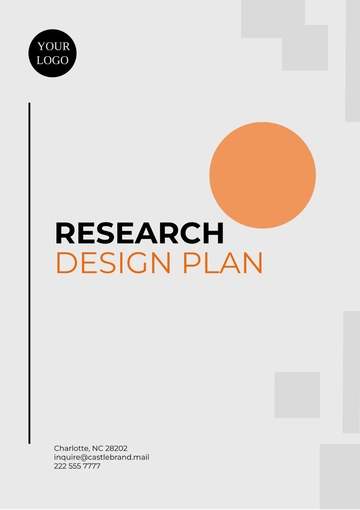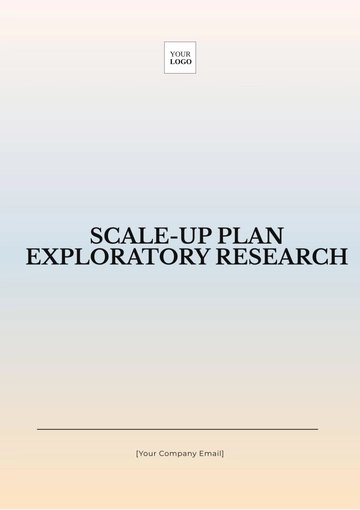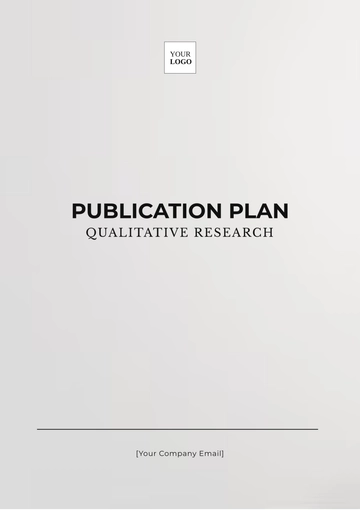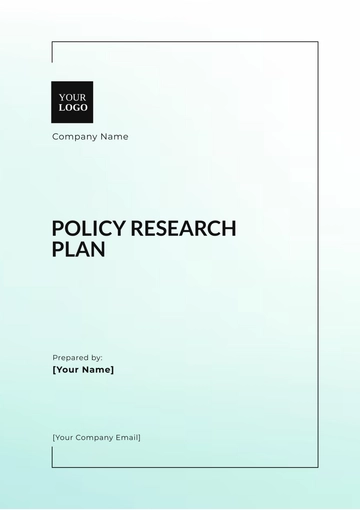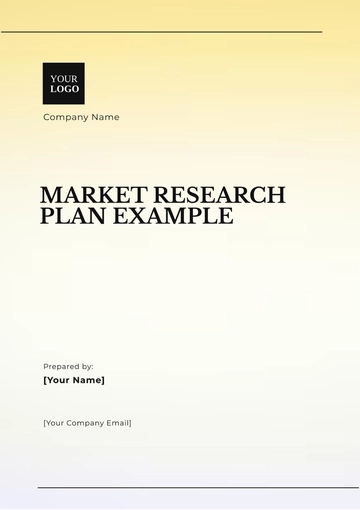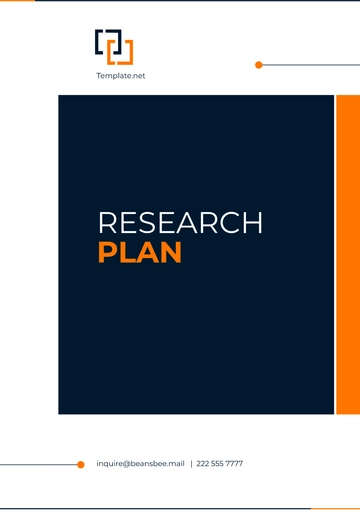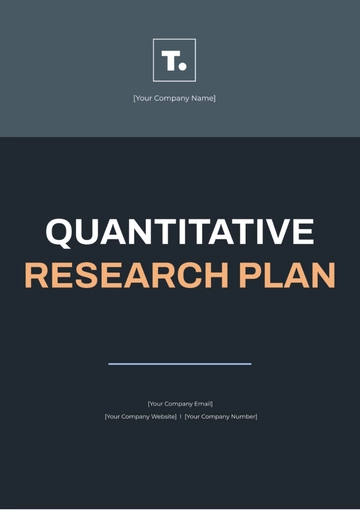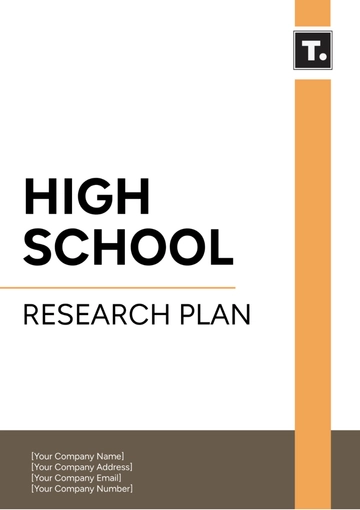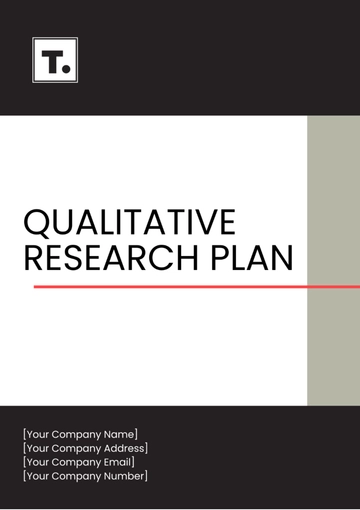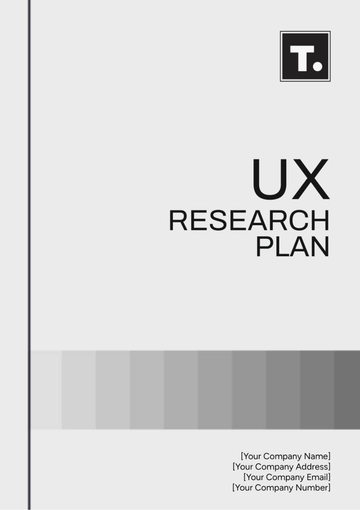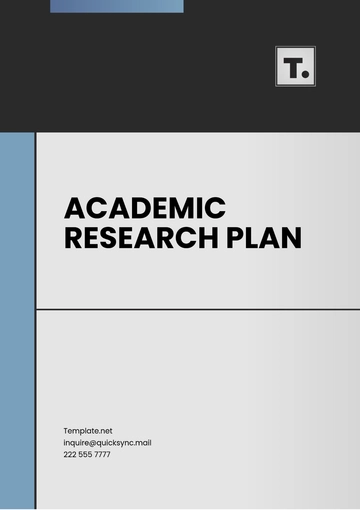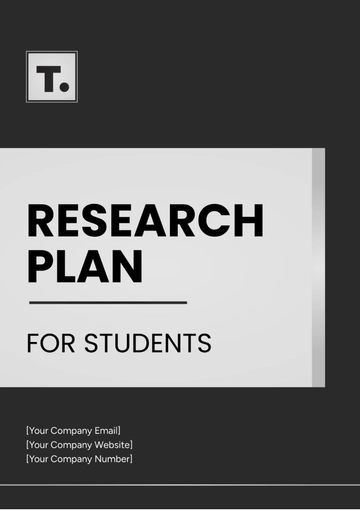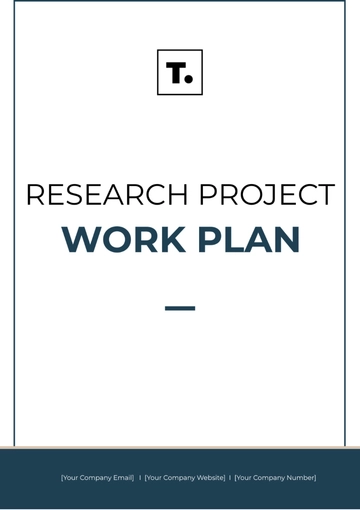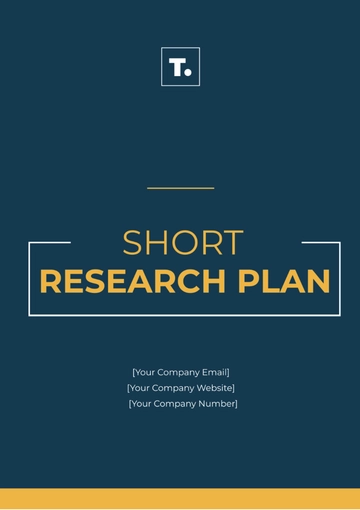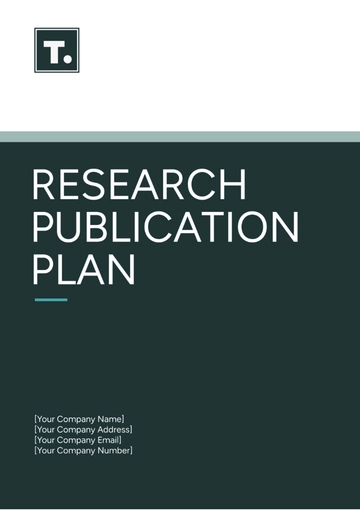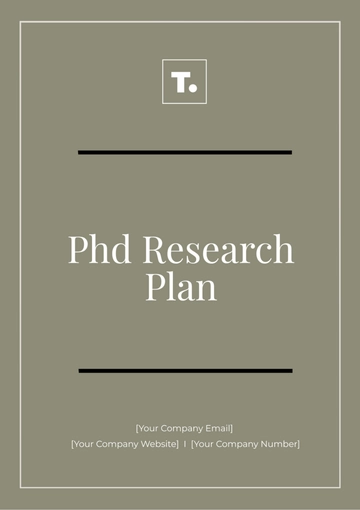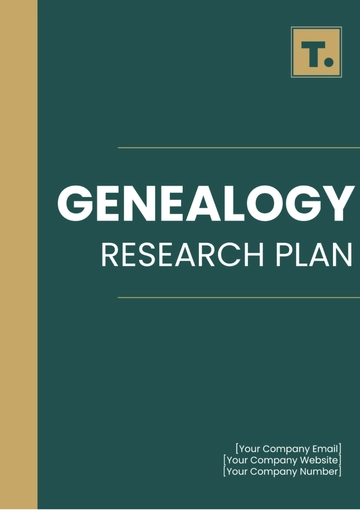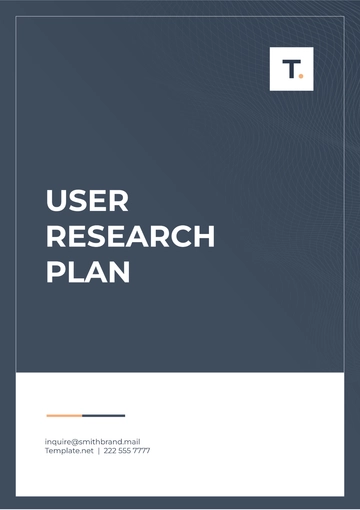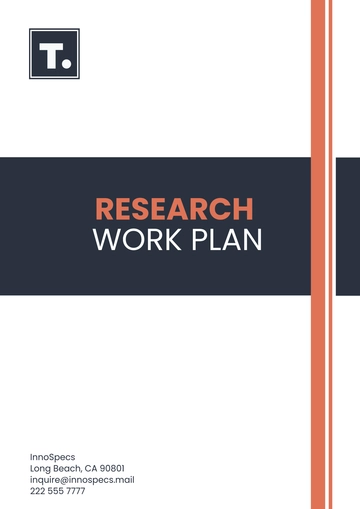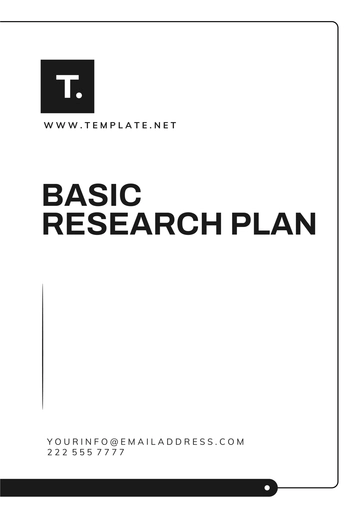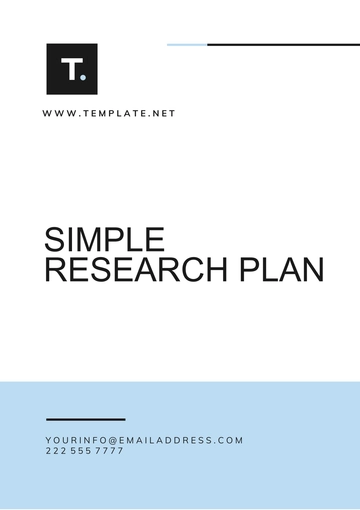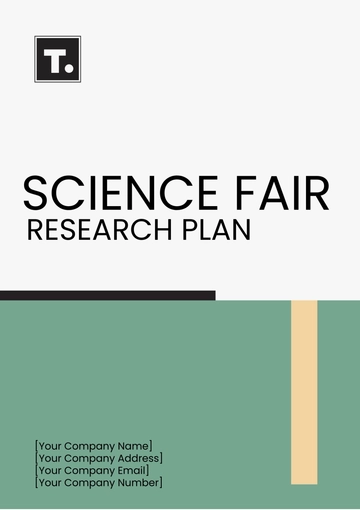Free Research Plan For Students
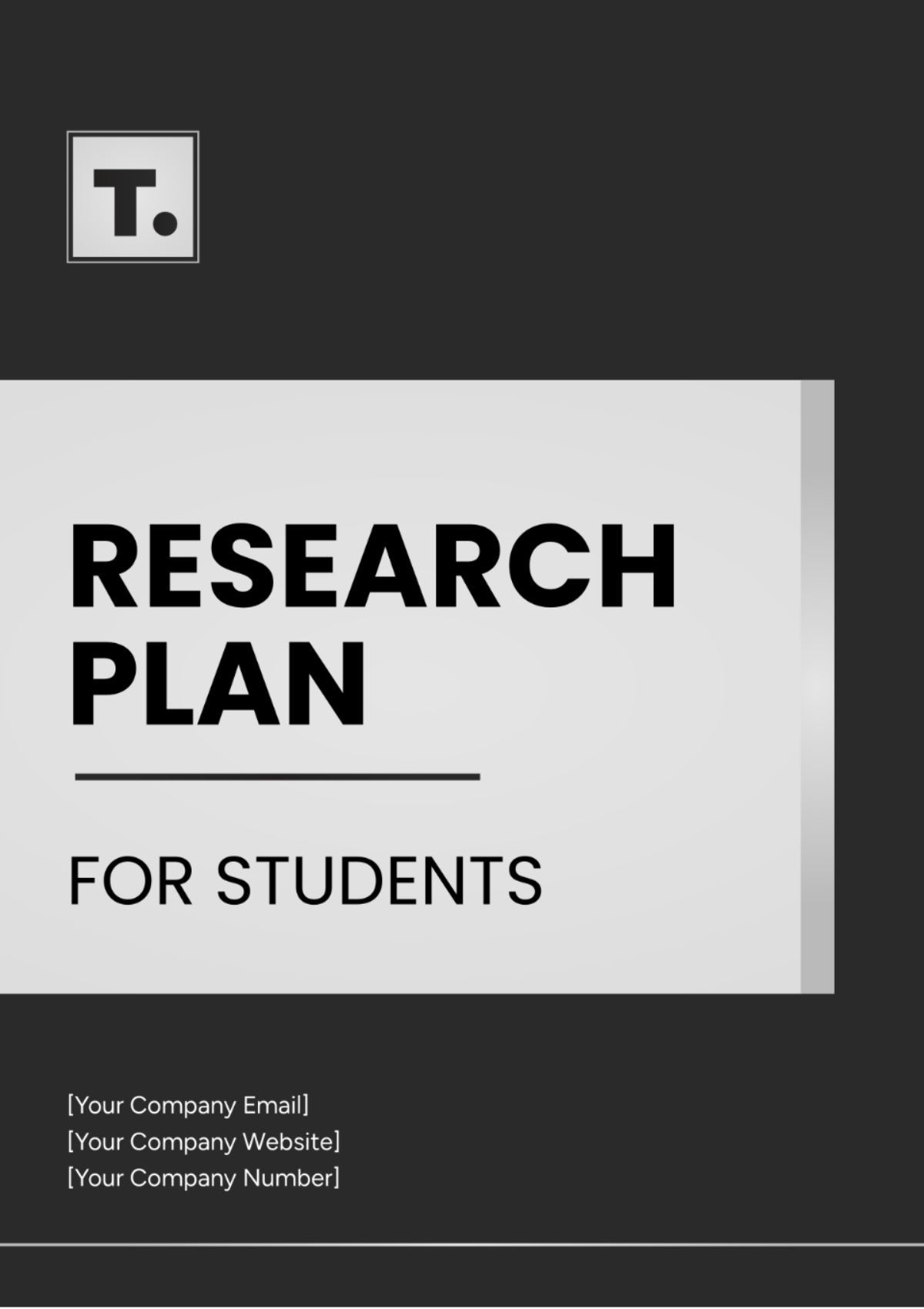
I. Research Overview
The transition to renewable energy sources is a crucial aspect of sustainable development, particularly in urban areas where energy demand is high and environmental impacts are significant. This Research Plan for Students aims to investigate the impact of renewable energy adoption on urban sustainability, examining environmental, economic, and social dimensions. By analyzing the current state of renewable energy usage, identifying barriers and facilitators to adoption, and proposing strategies for integration into urban planning, the study seeks to provide valuable insights for policymakers, urban planners, and other stakeholders involved in promoting sustainable urban development.
II. Student Information
Name | [YOUR NAME] |
|---|---|
[YOUR EMAIL] | |
Institution | [INSTITUTION NAME] |
Advisor | [ADVISOR'S NAME] |
III. Research Objectives
To analyze the current state of renewable energy adoption in urban areas.
To assess the environmental, economic, and social impacts of renewable energy on urban sustainability.
To identify barriers and facilitators to the widespread adoption of renewable energy in cities.
To propose strategies to enhance the integration of renewable energy into urban planning.
IV. Research Questions
What is the current level of renewable energy usage in urban areas?
How does renewable energy adoption affect environmental sustainability in cities?
What are the economic implications of transitioning to renewable energy in urban settings?
What social benefits and challenges arise from the use of renewable energy in cities?
What strategies can effectively promote renewable energy integration in urban development?
V. Methodology
A. Research Design
Aspect | Details |
|---|---|
Type | Mixed-methods approach |
Duration | January 2050 - December 2050 |
B. Data Collection
Data Type | Methodology |
|---|---|
Quantitative Data |
|
Qualitative Data |
|
C. Data Analysis
Data Type | Analysis Method |
|---|---|
Quantitative Data | Statistical analysis using SPSS or R |
Qualitative Data | Thematic analysis using NVivo |
VI. Timeline
Period | Activity |
|---|---|
January 2050 - February 2050 | Literature review, finalize research questions |
March 2050 - April 2050 | Develop and pilot survey instruments |
May 2050 - July 2050 | Data collection (surveys and interviews) |
August 2050 - September 2050 | Data analysis |
October 2050 | Draft research findings |
November 2050 | Review and revise the research report |
December 2050 | Submit final report, present findings |
VII. Resources Required
Resource | Details |
|---|---|
Academic Databases | Access to JSTOR, ScienceDirect, Google Scholar |
Survey Software | Qualtrics, SurveyMonkey |
Statistical Analysis Software | SPSS, R |
Qualitative Analysis Software | NVivo |
Recording Equipment | High-quality audio recorders for interviews |
Travel Funds | Budget for site visits and case studies |
VIII. Expected Outcomes
Comprehensive Understanding: The research will provide a thorough understanding of the current state of renewable energy adoption in urban areas, highlighting key trends, challenges, and opportunities.
Environmental Impact Assessment: The study will assess the environmental benefits of renewable energy adoption, such as reductions in greenhouse gas emissions and improvements in air quality.
Economic Analysis: The research will analyze the economic implications of renewable energy adoption, including cost savings, job creation, and economic growth in urban areas.
Social Insights: The study will explore the social benefits and challenges associated with renewable energy adoption, such as public acceptance, equity issues, and community engagement.
Policy Recommendations: The research will provide practical recommendations for policymakers and urban planners to promote and enhance the integration of renewable energy into urban development strategies.
IX. Conclusion
In conclusion, this Research Plan for Students aims to provide a comprehensive and multi-dimensional analysis of the adoption of renewable energy in urban areas and its various impacts. By employing a mixed-methods approach, the study will generate robust and nuanced insights that can inform stakeholders about the benefits and challenges of renewable energy integration. The findings are expected to contribute significantly to academic literature and provide practical guidance for policymakers, urban planners, and other stakeholders involved in promoting sustainable urban development.
- 100% Customizable, free editor
- Access 1 Million+ Templates, photo’s & graphics
- Download or share as a template
- Click and replace photos, graphics, text, backgrounds
- Resize, crop, AI write & more
- Access advanced editor
Enhance your academic journey with Template.net's Research Plan Template for Students. Crafted to streamline your research process, this customizable and editable template empowers you to organize your ideas efficiently. With our AI Editor Tool, you can tailor your plan to meet your project requirements. Elevate your research game and achieve academic excellence with ease.
You may also like
- Finance Plan
- Construction Plan
- Sales Plan
- Development Plan
- Career Plan
- Budget Plan
- HR Plan
- Education Plan
- Transition Plan
- Work Plan
- Training Plan
- Communication Plan
- Operation Plan
- Health And Safety Plan
- Strategy Plan
- Professional Development Plan
- Advertising Plan
- Risk Management Plan
- Restaurant Plan
- School Plan
- Nursing Home Patient Care Plan
- Nursing Care Plan
- Plan Event
- Startup Plan
- Social Media Plan
- Staffing Plan
- Annual Plan
- Content Plan
- Payment Plan
- Implementation Plan
- Hotel Plan
- Workout Plan
- Accounting Plan
- Campaign Plan
- Essay Plan
- 30 60 90 Day Plan
- Research Plan
- Recruitment Plan
- 90 Day Plan
- Quarterly Plan
- Emergency Plan
- 5 Year Plan
- Gym Plan
- Personal Plan
- IT and Software Plan
- Treatment Plan
- Real Estate Plan
- Law Firm Plan
- Healthcare Plan
- Improvement Plan
- Media Plan
- 5 Year Business Plan
- Learning Plan
- Marketing Campaign Plan
- Travel Agency Plan
- Cleaning Services Plan
- Interior Design Plan
- Performance Plan
- PR Plan
- Birth Plan
- Life Plan
- SEO Plan
- Disaster Recovery Plan
- Continuity Plan
- Launch Plan
- Legal Plan
- Behavior Plan
- Performance Improvement Plan
- Salon Plan
- Security Plan
- Security Management Plan
- Employee Development Plan
- Quality Plan
- Service Improvement Plan
- Growth Plan
- Incident Response Plan
- Basketball Plan
- Emergency Action Plan
- Product Launch Plan
- Spa Plan
- Employee Training Plan
- Data Analysis Plan
- Employee Action Plan
- Territory Plan
- Audit Plan
- Classroom Plan
- Activity Plan
- Parenting Plan
- Care Plan
- Project Execution Plan
- Exercise Plan
- Internship Plan
- Software Development Plan
- Continuous Improvement Plan
- Leave Plan
- 90 Day Sales Plan
- Advertising Agency Plan
- Employee Transition Plan
- Smart Action Plan
- Workplace Safety Plan
- Behavior Change Plan
- Contingency Plan
- Continuity of Operations Plan
- Health Plan
- Quality Control Plan
- Self Plan
- Sports Development Plan
- Change Management Plan
- Ecommerce Plan
- Personal Financial Plan
- Process Improvement Plan
- 30-60-90 Day Sales Plan
- Crisis Management Plan
- Engagement Plan
- Execution Plan
- Pandemic Plan
- Quality Assurance Plan
- Service Continuity Plan
- Agile Project Plan
- Fundraising Plan
- Job Transition Plan
- Asset Maintenance Plan
- Maintenance Plan
- Software Test Plan
- Staff Training and Development Plan
- 3 Year Plan
- Brand Activation Plan
- Release Plan
- Resource Plan
- Risk Mitigation Plan
- Teacher Plan
- 30 60 90 Day Plan for New Manager
- Food Safety Plan
- Food Truck Plan
- Hiring Plan
- Quality Management Plan
- Wellness Plan
- Behavior Intervention Plan
- Bonus Plan
- Investment Plan
- Maternity Leave Plan
- Pandemic Response Plan
- Succession Planning
- Coaching Plan
- Configuration Management Plan
- Remote Work Plan
- Self Care Plan
- Teaching Plan
- 100-Day Plan
- HACCP Plan
- Student Plan
- Sustainability Plan
- 30 60 90 Day Plan for Interview
- Access Plan
- Site Specific Safety Plan
